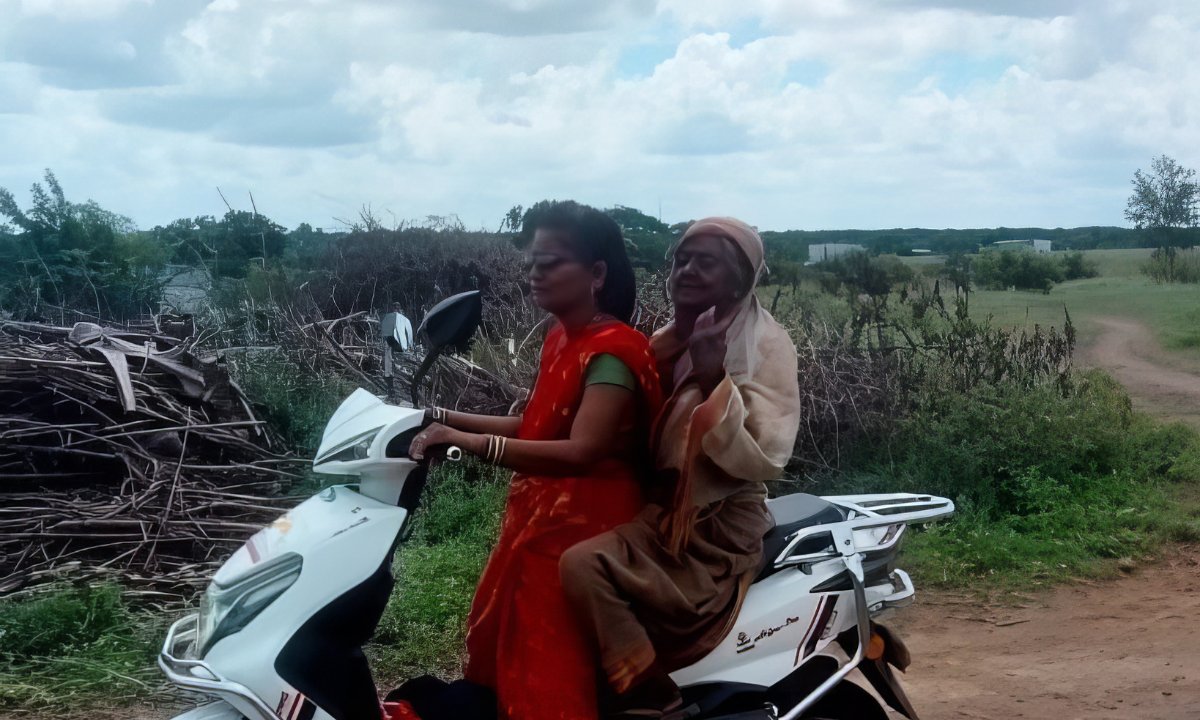Empowering Women Through Mobility
Rural Two Wheeler Taxis for Women by Women
Newsreel Asia Insight #129
Feb. 12, 2024
In the drought-prone district of Sangli in Maharashtra, a quiet revolution is unfolding—one that has transformed the lives of women grappling with limited mobility. In the episode, “A Ticket to Ride” for Newsreel Asia’s Radio Local podcast, a community radio Yeralavani sheds light on the inspiring stories of Savita Mote and Sakhubai Suryavanshi, illustrating how innovative solutions are breaking down barriers for rural women.
Sangli, renowned for its turmeric cultivation, is grappling with dwindling farm incomes and erratic rainfall, compelling women like Savita Mote to seek employment outside their homes. Savita started working at the village health centre, often covering the one-kilometre distance on foot. Rainy days added to her struggles as she walked on mud-laden roads to reach households, facing the challenges of infrequent bus services and erratic three-wheel auto availability.
Sakhubai Suryavanshi, a sari seller from the nearby village of Aasangi, shared similar mobility woes. Her weekly trek to neighbouring markets, carrying her merchandise on foot, involved covering considerable distances and sometimes extended into late hours. Both Savita and Sakhubai encapsulated the shared hardships of rural women, where limited transportation options hindered their access to opportunities, healthcare, and leisure.
The situation, not unique to Sangli, mirrors a broader challenge in India. According to a 2022 World Bank report, public transportation services in the country are not designed with women’s safety in mind. As a result, India has one of the lowest rates of women participating in the labour force globally, standing at only 22.8% in 2019-20, in stark contrast to China’s 60% participation.
However, Savita and Sakhubai found convenience and a livelihood through electric mobility. In a region where traditional transportation options were unreliable, nine women, including Savita, embraced the opportunity to operate electric two-wheeler taxis. Provided by a nonprofit organisation, these e-bikes offered a sustainable solution. The women who received these bikes were only responsible for the electricity costs.
Savita did not know how to ride a bike but was proficient at cycling. With that skill, she eagerly embraced the chance to run an e-bike taxi service. The initiative aimed to serve three satellite villages around Sangli, connecting 27 villages in total. The service not only offered Savita a livelihood but also became a catalyst for positive change in the wider community.
Savita’s e-bike taxi service provided Sakhubai with affordable and reliable transportation for her sari-selling business. It also improved her overall quality of life. For women like Sakhubai, who previously risked hitchhiking on strangers' bikes during the monsoons, the e-bike taxi brought a newfound sense of security.
The impact extended beyond business. The e-bike taxi service facilitated better access to healthcare. Sakhubai didn’t hesitate to approach Savita for a drop to medical facilities, for instance. Additionally, the service freed up time, allowing women to engage in leisure activities and make small trips to neighbouring temples.
Savita and her fellow e-bike operators not only addressed the mobility challenges faced by women in Sangli but also contributed to economic empowerment. This was the biggest takeaway for Sandhya Patil, Nita Joshi and Jahnvi Khadilkar of Community Radio Yeralavani from interviewing Savita and Sakhubai.
The cost savings from the e-bike taxi service, coupled with increased income, led to improved financial stability. Sakhubai expanded her market reach, selling her wares in four villages instead of one. This is clear proof of the profound impact of innovative solutions on rural livelihoods.
The e-bike taxi service in Sangli exemplifies how sustainable, women-centric solutions can not only address mobility challenges but also pave the way for economic empowerment, improved healthcare access, and enhanced overall well-being in rural India.

